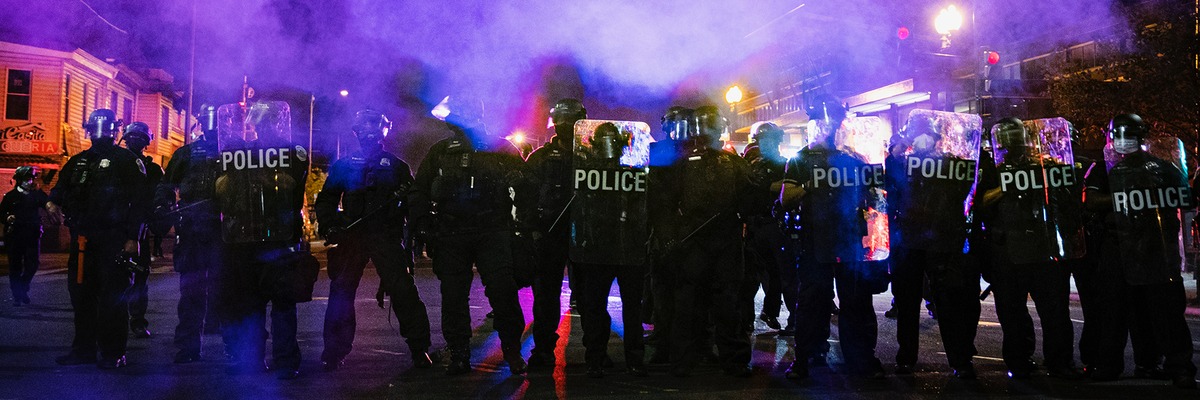Many voters are worried that post-election protests will erupt into violence according to the final Economist/YouGov poll before the election.
Registered voters think protests are more likely if President Donald Trump is re-elected (81%) than if Democratic former Vice President Joe Biden wins (51%).
More Biden voters (58%) than Trump voters (41%) expect mass protests if the Democrat wins, though nearly as many of the President’s supporters say such protests are likely than say they are not. But the larger concern comes if the President is re-elected. Nearly nine in ten Biden voters (89%) and 78% of Trump voters expect mass protests in that eventuality.
There is clear concern that whatever happens, those protests could turn violent. Only one in four registered voters who think there will be protests say those protests will remain non-violent. There is little difference on these questions by vote: if you expect protests after a Trump win, you also predict violence. Biden supporters are only a little more concerned than Trump voters about violence following a Biden victory.
There is concern, particularly from Biden supporters (52%), that there will not be a peaceful transition of power should the Democrat win. Three in five Trump supporters believe the presidency will be transferred peacefully (one in four disagree).
Of course, we aren’t sure exactly when we will know which candidate has amassed the 270 Electoral Votes required to win the election. President Trump continues to insist that the vote count end on election night itself – which rarely happens in the United States except in landslide elections. Vote counting in many states continues into the next day or two (twenty years ago, it went on for 35 days, until the Supreme Court ruled in favor of George W. Bush in Florida, which gave him the Presidency). Many states are not permitted to process mail ballots until election day; some states allow mail ballots to be accepted after election day, as long as they are postmarked by that date.
The President’s supporters have much different expectations from their candidate about the vote count. One in five of them agree with the President that the outcome will be known election night, and another 12% expect it the next day. Nearly nine in 10 of those Trump voters (89%) who expect to know the results by Wednesday would find that acceptable. But concern grows among them as their expected length of time for the outcome to be known extends a few days after the election or longer
Biden voters, for the most part, believe that the count’s length would be acceptable to them, however long it takes.
Both sides expect to win, although Biden voters more nervous about the Electoral College
Biden voters are expecting victory – at least in the popular vote. Nine in ten say Biden will carry the popular vote, thought fewer, 61%, say he will win the Electoral College. Among Trump supporters, the expectations are different, 84% of them expect a Trump Electoral College victory, though only 65% think the President will win the popular vote.
While few Biden voters today expect a Trump Electoral College majority, a third of Biden voters say they aren’t sure which candidate will win the necessary 270 electoral votes and be elected President.
Related: Joe Biden goes into election with 10-point national lead in final Economist/YouGov poll
See the toplines and crosstabs from this week's Economist/YouGov Poll
Methodology: The Economist survey was conducted by YouGov using a nationally representative sample of 1,500 registered voters interviewed online between October 31 - November 2, 2020. This sample was weighted according to gender, age, race, and education based on the American Community Survey, conducted by the US Bureau of the Census, as well as 2016 Presidential vote, registration status, geographic region, and news interest. Respondents were selected from YouGov’s opt-in panel to be representative of all US citizens. The margin of error is approximately 3.0% for the overall sample.
Image: Getty











